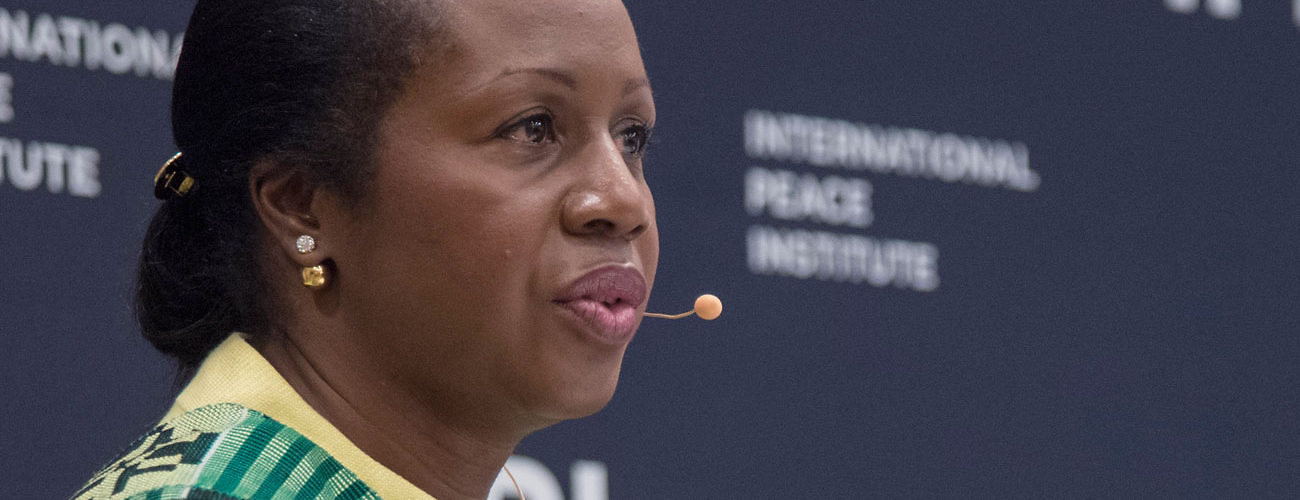An IPI event considered the challenges pertaining to mixed migration flows to Ethiopia, a country that currently hosts the largest number of refugees on the African continent.
Clementine Awu Nkweta-Salami, United Nations High Commissioner for Refugees’ (UNHCR) Representative in Ethiopia, said that while repatriation is at its lowest level since the 1980s, the vast majority of Somalis and South-Sudanese will return to their country “once the situation is conducive to their return.” Ethiopia’s refugee and migrant population is comprised primarily of Somalis, South-Sudanese, and Eritreans.
UNHCR and its partners face multiple and heightened challenges in supporting host countries in delivering lifesaving needs to refugees and building their resilience, she said.
An upcoming UN General Assembly high-level plenary meeting on addressing large movements of refugees and migrants, to be held September 19, 2016, will be a key forum for member states to determine a plan to meet refugees’ immediate humanitarian, and longer-term development needs, she said.
She made four proposals to that end. First, she suggested an alternative to refugee camps, which could better allow for freedom of movement, and keep family units together.
Second, she outlined a plan in which, “refugees with skills can be allowed to travel, and work for a time while having visa.”
Third, she noted that Ethiopia allows the refugees and migrants it hosts to use land for commercial activity, recognizing the contribution this population makes to their host state. She suggested this model could be adopted elsewhere.
Finally, she suggested UNHCR work more closely with its NGO partners and the International Organization for Migration (IOM) to “get a better understanding of how movement takes place, and who is involved.”
Despite hosting the fifth largest refugee situation in the world, Ethiopia is finding means to provide their guests a dignified experience, by taking the initiative to private sector fundraising, among other programs. Other models on the continent include Uganda’s openness to refugees; a vision that she said is “embedded in their development plan.”
“What is clear is [that] there is a need in a country like Ethiopia for the international community to support and manage tension, and come up with an innovative project program to provide a win-win,” for both refugees and host states, she said.
The May 19, 2016 event, “Addressing the Refugee Situation in Ethiopia” was held as part of IPI’s Humanitarian Affairs Series.
Els Debuf, IPI Senior Adviser for Humanitarian Affairs, moderated the conversation.








